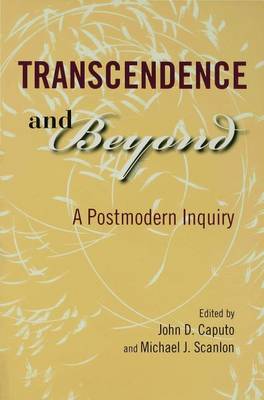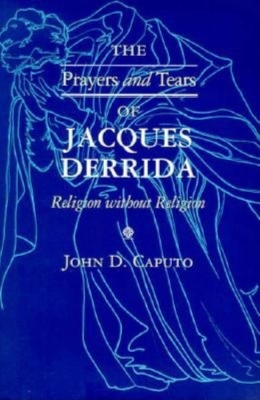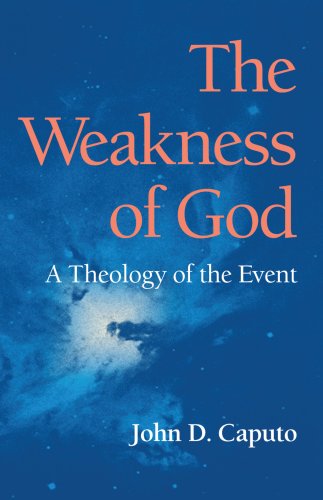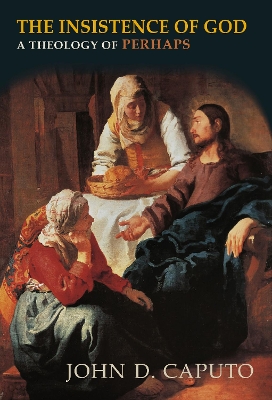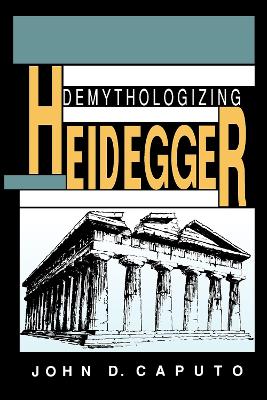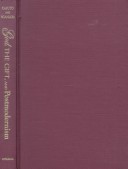Philosophy of Religion
7 total works
Transcendence and Beyond poses the classical questions of transcendence in a postmodern setting. Do we need a transcendence that is ever more beyond or should we put transcendence behind us altogether? Is it the case that, when seen in a postmodern light, transcendence must be itself transcended? In this thought-provoking volume, Jean-Luc Marion, Gianni Vattimo, and a distinguished group of international philosophers and theologians interrogate transcendence for today's philosophy of religion. The essays gathered here examine notions of transcendence to assess its relevance and meaning in a postmodern context as well as to determine how it might be usefully refitted. Various subthemes, such as creation, love, religious language, the question of the impossible and that of becoming, emerge with a new definition of transcendence. Poised at the intersection of philosophy and religion, these reflections provide a benchmark for renewed consideration of this classic philosophical and religious theme.
"Caputo's book is riveting. . . . A singular achievement of stylistic brio and impeccable scholarship, it breaks new ground in making a powerful case for treating Derrida as homo religiosis. . . . There can be no mistaking the importance of Caputo's work." -Edith Wyschogrod
"No one interested in Derrida, in Caputo, or in the larger question of postmodernism and religion can afford to ignore this pathbreaking study. Taking full advantage of the most recent and least discussed writings of Derrida, it offers a careful and comprehensive account of the religious dimension of Derrida's thought." -Merold Westphal
John D. Caputo stretches his project as a radical theologian to new limits in this groundbreaking book. Mapping out his summative theological position, he identifies with Martin Luther to take on notions of the hidden god, the theology of the cross, confessional theology, and natural theology. Caputo also confronts the dark side of the cross with its correlation to lynching and racial and sexual discrimination. Caputo is clear that he is not writing as any kind of orthodox Lutheran but is instead engaging with a radical view of theology, cosmology, and poetics of the cross. Readers will recognize Caputo's signature themes-hermeneutics, deconstruction, weakness, and the call-as well as his unique voice as he writes about moral life and our strivings for joy against contemporary society and politics.
The Insistence of God presents the provocative idea that God does not exist, God insists, while God's existence is a human responsibility, which may or may not happen. For John D. Caputo, God's existence is haunted by "perhaps," which does not signify indecisiveness but an openness to risk, to the unforeseeable. Perhaps constitutes a theology of what is to come and what we cannot see coming. Responding to current critics of continental philosophy, Caputo explores the materiality of perhaps and the promise of the world. He shows how perhaps can become a new theology of the gaps God opens.
"Caputo offers a compelling plea for a reinterpretation of Heidegger that will make us more humane, and more attuned to the call of justice and mercy than to the call of Being." -Christian Century
"There is no other book that focuses on the religious significance of the many 'turnings' in Heidegger's thought, nor that addresses the question of Heidegger's politics textually rather than autobiographically." -Merold Westphal
A readable chronological consideration of Heidegger's texts that assesses his achievement as a thinker, while pointing to the sources of his political and ethical failure. Caputo addresses the religious significance of Heidegger's thought.
Taylor, David Tracy, Merold Westphal, and Edith Wyschogrod.
